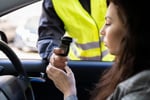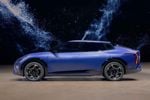HMRC has decided not to launch an appeal after a court ruled it wrongly refused tax relief from national insurance payments paid on car allowances.
The UK tax authority had until September 4 to appeal last month’s ruling by the Upper Tribunal.
A spokesperson for HMRC told Fleet News: “We won’t be appealing the decision of the Upper Tribunal and are considering its outcome.”
John Messore, managing partner at Innovation, the firm behind the joint hearing, said: “I cannot explain how happy I am at this result. It started with my writing articles on the Total People cases in 2010 and 2011. I attended Court in 2012 to see the Court of Appeal case in person."
For Laing and Willmott, HMRC accepted the annualised calculations of the claims. Messore warned that for any new claims HMRC are "almost certainly" going to expect calculations based on ‘earnings periods’ which most likely are monthly but could also be weekly or four-weekly.
The two employers – Wilmott Dixon and Laing O’Rouke – successfully argued that car allowance payments made to its employees were ‘relevant motoring expenditure’ and therefore should qualify for relief from Class 1 National Insurance Contributions (NICs).
Both cases were heard together. Laing O’Rourke was appealing an earlier decision which had ruled in favour of HMRC, while the UK’s tax authority was appealing a previous ruling in favour of Wilmott Dixon being able to claim the relief.
After considering the evidence, two judges in the UK’s Upper Tribunal ruled in favour of the employers, leaving HMRC potentially having to repay Laing O’Rourke £2.2 million in NICs from tax years 2004/05 to 2017/18 and paving the way for many more claims.
Both cases followed the landmark Total People tax ruling from more than 10 years ago, when HMRC lost a case at the Court of Appeal involving grey fleet mileage claims.
Total People’s long-running legal battle related to an NI refund claim based on the difference between the HMRC 40p per mile (ppm) approved mileage allowance payment (AMAP) rate (now 45p) and the 12ppm paid by the employer plus an additional lump sum paid to the employees for using their private cars on business.
The value of the amount claimed was approximately £146,000 or around £1,000 per employee, which was subsequently paid by HMRC.
In what was the first test case following the Total People ruling, Laing O’Rourke argued in a First Tier Tribunal, two years ago, that its car allowance scheme should also qualify for relief from NICs on payments made to employees.
HMRC argued that relief did not apply, because the payments could not be defined as relevant motoring expenditure. Judge Tracey Bowler agreed, ruling in favour of HMRC.
Hearing Laing O'Rourke's appeal in the Upper Tribunal, however, the Honourable Mr Justice Michael Green and Judge Jonathan Cannan decided that Judge Bowler had “erred in adopting a narrow definition” of relevant motoring expenditure.
As a result, they allowed Laing O’Rourke's appeal, ruling the company was entitled to repayment of NICs paid in relation to car allowances.
In the case of Willmott Dixon, the judges also dismissed HMRC’s appeal. The company had previously argued that car allowance payments made to its employees were relevant motoring expenditure and should qualify for relief.
HMRC had refused to refund Willmott Dixon for NICs paid from 2004/05 to May 2014 relating to car allowance payments made by the firm.
It argued that the car allowances were earnings and not relevant motoring expenditure, but in what was a landmark ruling for fleets last year, the First Tier Tribunal ruled in favour of Willmott Dixon.
Last month’s ruling agreed with that original decision and also found in favour of Lang O’Rourke, exposing HMRC to further cash allowance claims.
NIC Refund claims may now be possible, according to Ian Goodwin, tax partner at Mazars.






















Login to comment
Comments
No comments have been made yet.